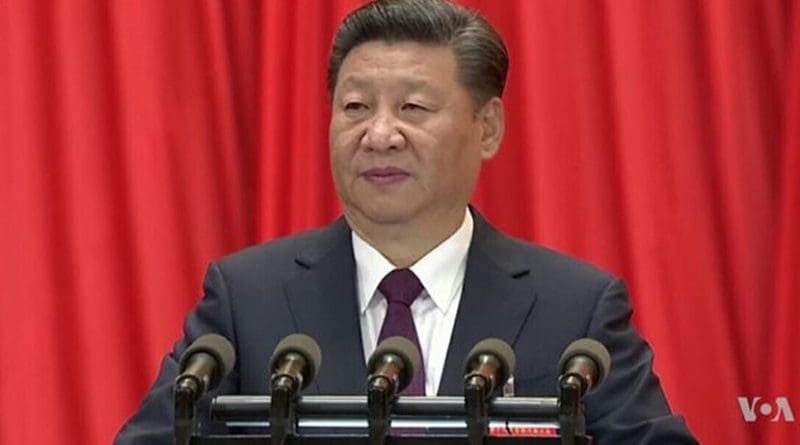Does Xi’s Constitutional Amendment Mark End Of The ‘China Model’? – OpEd
By Mitchell Blatt*
Daniel Bell has been one of the proponents of the argument that China’s model of enlightened authoritarianism can be successful and represent a challenge to the Western consensus. Educated leaders, who are promoted through a meritocratic process on the basis of their achievements at lower levels, could set a long term path for the world’s most populous country more effectively without having to pander to the masses and the interest groups, the argument went.
In a 2015 article published in The Atlantic adapted from Bell’s book The China Model: Political Meritocracy and the Limits of Democracy, Bell wrote:
The top of the China model is characterized by political meritocracy—the idea that high-level officials should be selected and promoted on the basis of ability and virtue. The ideal was institutionalized in imperial China by means of an elaborate examination system that dates to the Sui dynasty in the sixth and seventh centuries. … Top leaders must also accumulate decades of diverse administrative experience, with only a tiny proportion reaching the commanding heights of government. For example, Xi’s four-decade-long ascent to the presidency involved 16 major promotions through county, city, and province levels, and then the Central Committee, the Politburo, and the top spot in the Standing Committee of the Politburo, with reviews at each stage to assess his leadership abilities. Arguably, the Chinese political system is the most competitive in the world today.
Once leaders reach the pinnacle of political power, they can plan for the long term and make decisions that take into account the interests of all relevant stakeholders, including future generations and people living outside the country; leaders serve 10-year terms and assume (and do their best to guarantee) that the same party will be in power decades into the future. Collective leadership, in the form of the Politburo’s seven-member Standing Committee, ensures that no one leader with outlandish and uninformed views can set wrongheaded policies (such as the disastrous Great Leap Forward when Mao, and only Mao, decided on national policies).
But will China’s political system remain so competitive once Xi takes action to stay in power for five more years or longer? The specter of such a power grab had long been projected by some journalists in papers like the Wall Street Journal. Now the gears are moving for it to happen. The CCP Central Committee has proposed a constitutional amendment (among others) to do away with the limit of two consecutive terms for the presidency.
Does this change overturn the argument for the China Model? Bell did acknowledge in 2015, “Of course, there remains a large gap between the China model as an ideal and the political reality.”
Now more so. Leaders no longer serve 10-year terms and cede power. We don’t know how long Xi will ultimately serve, but in countries where the leaders try to serve indefinitely, struggles for power can be even more chaotic and violent. Term limits are supposed to prevent any one leader from concentrating too much power. Power has a way of snowballing as checks are removed. Park Chunghee’s 1969 amendment of the Korean constitution to extend his term once more quickly led to him becoming president for life.
We don’t know what will happen in China, but that uncertainty in and of itself makes it hard to appraise the China Model as a stable system in the long-term.
*Mitchell Blatt has been based in China and Korea since 2012. A writer and journalist, he is the lead author of Panda Guides Hong Kong guidebook and has contributed to outlets including The National Interest, National Review Online, Acculturated, and Vagabond Journey. Fluent in Chinese, he has lived and traveled in Asia for three years, blogging about his travels at ChinaTravelWriter.com. You can follow him on Twitter at @MitchBlatt.
This article was published at Bombs and Dollars.

